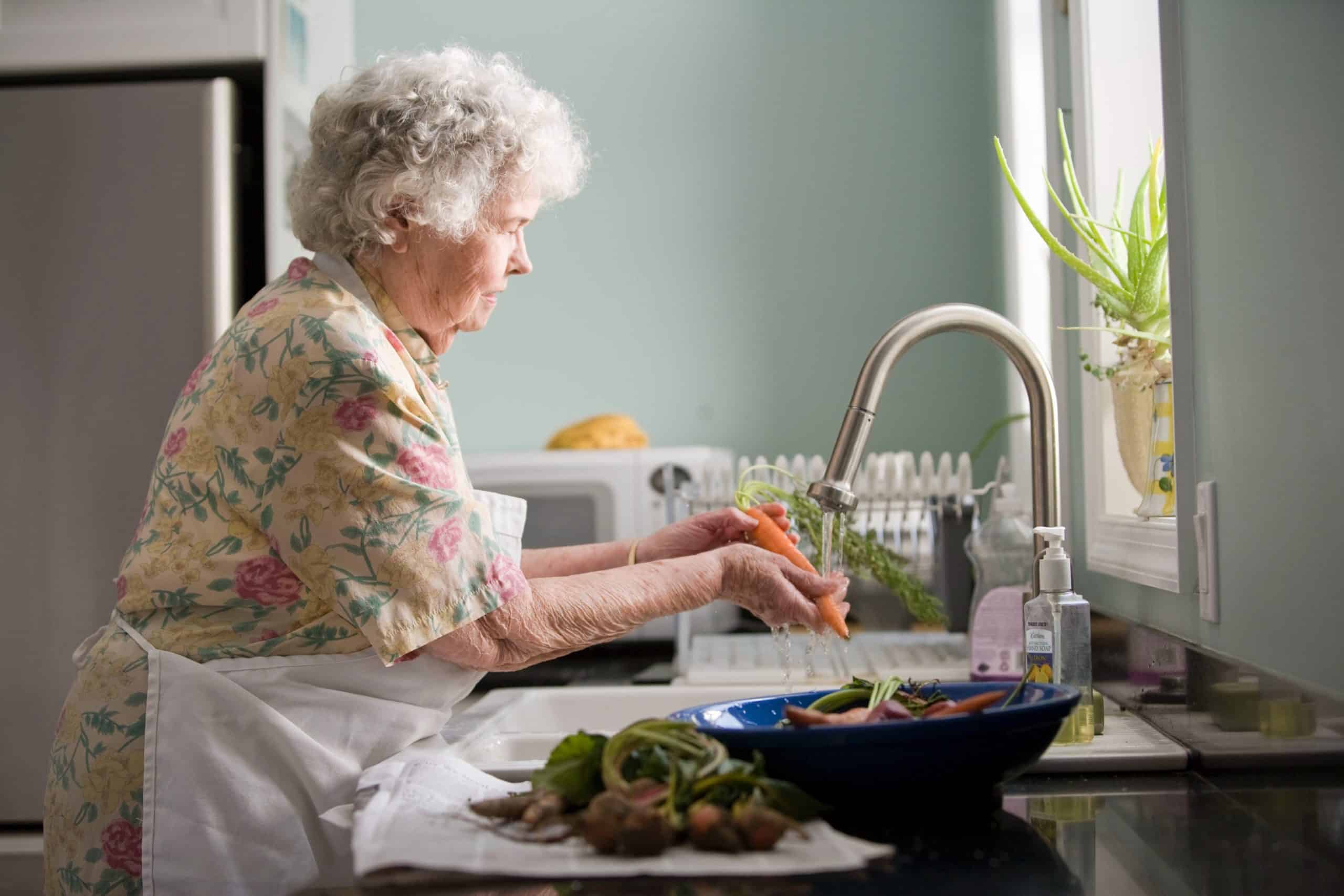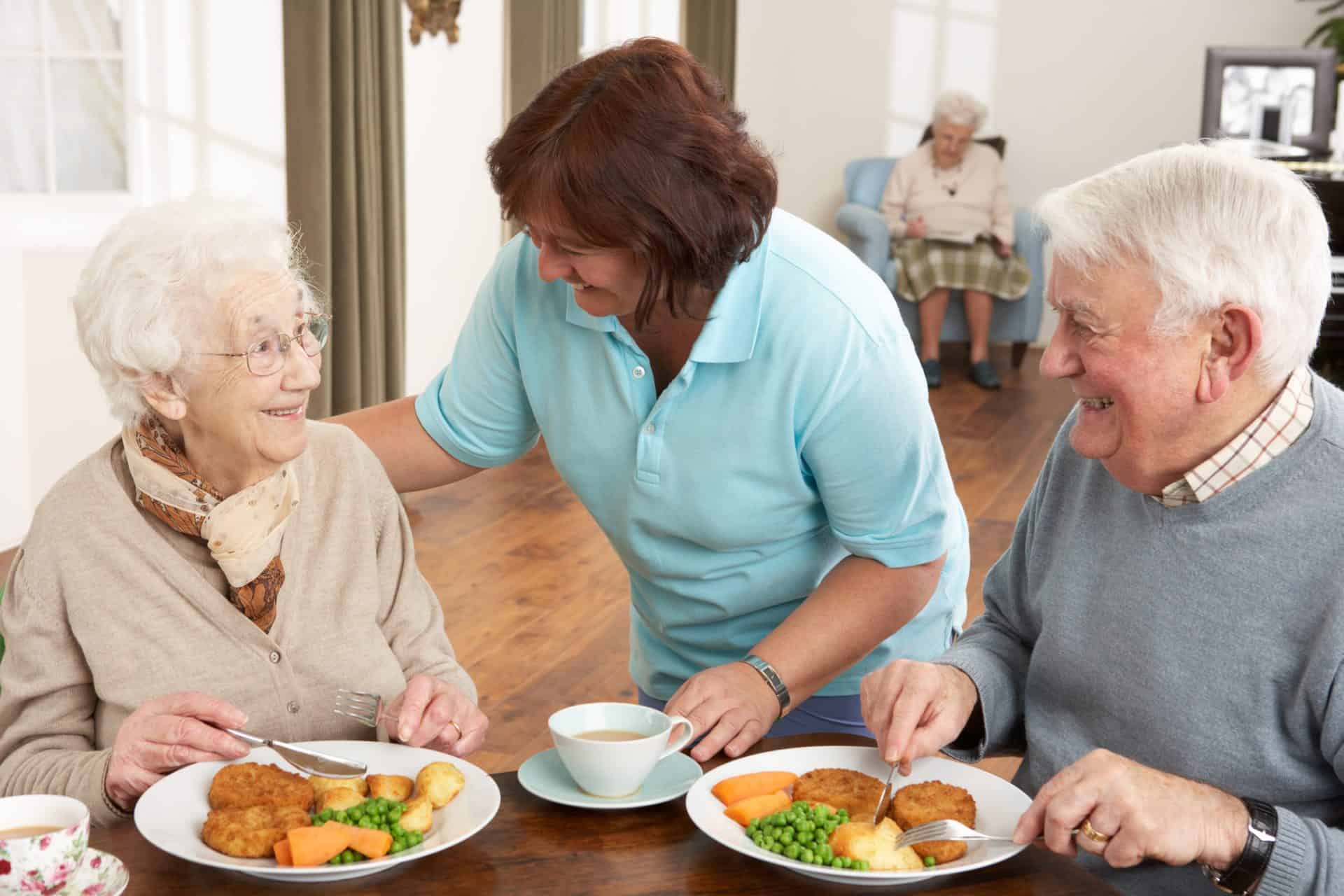Nutrition is an important element of health, whatever age you might be. Still, it becomes even more essential as we get older because maintaining a healthy diet can help us cope with ongoing illnesses and other health problems.
Americans may be more health-conscious than they were 20 years ago, but according to a 2019 survey by the International Food Information Council and the American Heart Foundation, adults aged 55 and older are less interested in seeking out healthier foods than younger generations. When it comes to their food, older consumers are influenced more by taste than health.
Meanwhile, increased consumption of fruits, vegetables, and fish — all part of the Mediterranean Diet — are proven to shorten episodes of depression due to the link between the gut microbiome and the brain. This is described as the gut-brain axis by the Harvard Review of Psychiatry.
The link between food and mental health is not a new concept, but as the New York Times pointed out last summer, the mass feelings of isolation caused by the pandemic helped to highlight the field of nutritional psychiatry. Numerous studies over the past 10 years prove the positive effects of a healthier diet on our mental wellness
Understanding what constitutes good nutrition and being careful with what you eat also helps you maintain or improve your health. Good nutrition gives you energy, can help control your weight, and may also help prevent some diseases, such as heart disease, high blood pressure, type 2 diabetes, osteoporosis, and even certain cancers.
A proper diet is the foundation of good health. Without the right levels of nutrients, seniors will have trouble maintaining cognitive and physical energy.
A well-balanced diet contains plenty of natural foods, including fruits, vegetables, whole grains, dairy, and protein. You should eat a good variety of these foods, with the protein coming from poultry and lean meat, while dairy products provides calcium and protein to promote healthy bones should be low fat.
A well-balanced diet also means there are certain foods you should try to avoid, such as overly processed foods and food with high levels of salt. Too much salt can increase the risk of heart disease.
You should also closely monitor your fat and cholesterol intake if you want to have a well-balanced diet that has good nutrition.
Micronutrients also have an important role to play in a well-balanced diet. Micronutrients include vitamins and minerals and are essential in small amounts, however seniors shouldn’t depend too much on nutritional supplements, vitamins and minerals in natural foods are always better than dietary supplements.
Our bodies are almost 60% water, and water plays a role in many of our vital bodily processes. Therefore, it’s important to hydrate regularly and drink around two litres of water a day. Good hydration is essential for body functions such as our brain and heart. It also helps to reduce the risk of various illnesses such as UTIs.

A mind/body link
Researchers continue to discover links between the gut and the brain, finding connections between bacteria and mental conditions such as anxiety, depression and dementia. The brain has a direct effect on the stomach and intestines. For example, the very thought of eating can release the stomach’s juices before food gets there. This connection goes both ways. A troubled intestine can send signals to the brain, just as a troubled brain can send signals to the gut. That’s because the brain and the gastrointestinal (GI) system are intimately connected. Scientists are experimenting with new ways to influence gut bacteria, but for the general public, they recommend leafy greens, fruit and vegetables to provide necessary fiber.
Many seniors are speaking to their doctors and dieticians about daily diet choices they can make to target a healthy microbiome. Most senior living communities already consult with nutritionists to support senior health and wellness, and some are taking the initiative a step further. They’re making special efforts to integrate a farm-to-table approach to dining and even harvesting ingredients from their own community gardens when possible.
Eating, a struggle for the elderly
There are several reasons why older people find it harder to eat. Of course, it could simply be that they’ve lost interest in cooking and eating, but that’s not the only reason. Health conditions such as depression or loneliness, dementia symptoms, Parkinson’s disease, side effects from medications, insomnia or other sleep problems, head and neck cancers, mouth and throat infections, salivary gland dysfunction or thyroid disorders can be reasons. To add more the loss of smell or taste can make eating very dull and uninteresting. Adding different spices and herbs might help. Finally, Living alone, shopping, cooking, and eating when you live alone can be difficult. Inviting people around and eating together can help. The thought of eating alone can be unappealing for people of all ages.
Making mealtimes a social event and eating with others increases food intake according to research . Use grocery delivery services or meal delivery services if going out to get food is a problem.
Bibliography:
Charlie Wilson, “Why nutrition is key to fending off isolation in older adults”, McKnights Senior Living, 9 May 2022. https://www.mcknightsseniorliving.com/home/columns/guest-columns/why-nutrition-is-key-to-fending-off-isolation-in-older-adults/
Claire Samuels, « Loss of apetite in the elderly: why it happens & how to get it back”, a Place for Mom, 23 April 2021. https://www.aplaceformom.com/caregiver-resources/articles/appetite-loss
Harvard Health Publishing, “The gut-brain connection”, Harvard Medical School, 19 April 2021. https://www.health.harvard.edu/diseases-and-conditions/the-gut-brain-connection#:~:text=The%20brain%20has%20a%20direct,send%20signals%20to%20the%20gut.
J Am Diet Assoc, Dietary patterns and survival of older adults, National Library of Medicine, January 2011. https://www.ncbi.nlm.nih.gov/pmc/articles/PMC3699861/#:~:text=A%20dietary%20pattern%20consistent%20with,and%20survival%20in%20older%20adults.
Jackman’s Lodge, “The importance of good nutrition in the elderly”, Jackman’s Lodge, 1 November 2021. https://jackmanslodge.co.uk/the-importance-of-good-nutrition-in-the-elderly/#:~:text=Choose%20calcium%2Drich%20foods%20and,and%20fortified%20plant%2Dbased%20drinks.
Visiting Angels, “7 Essential elements of senior wellness”, Visiting Angels. https://www.visitingangels.com/knowledge-center/senior-health-and-well-being/7-essential-elements-of-senior-wellness/531
Where you live matters, « Current wellness trends in senior living”, Where you live matters, 9 February 2021. https://www.whereyoulivematters.org/wellness-trends-in-senior-living/

